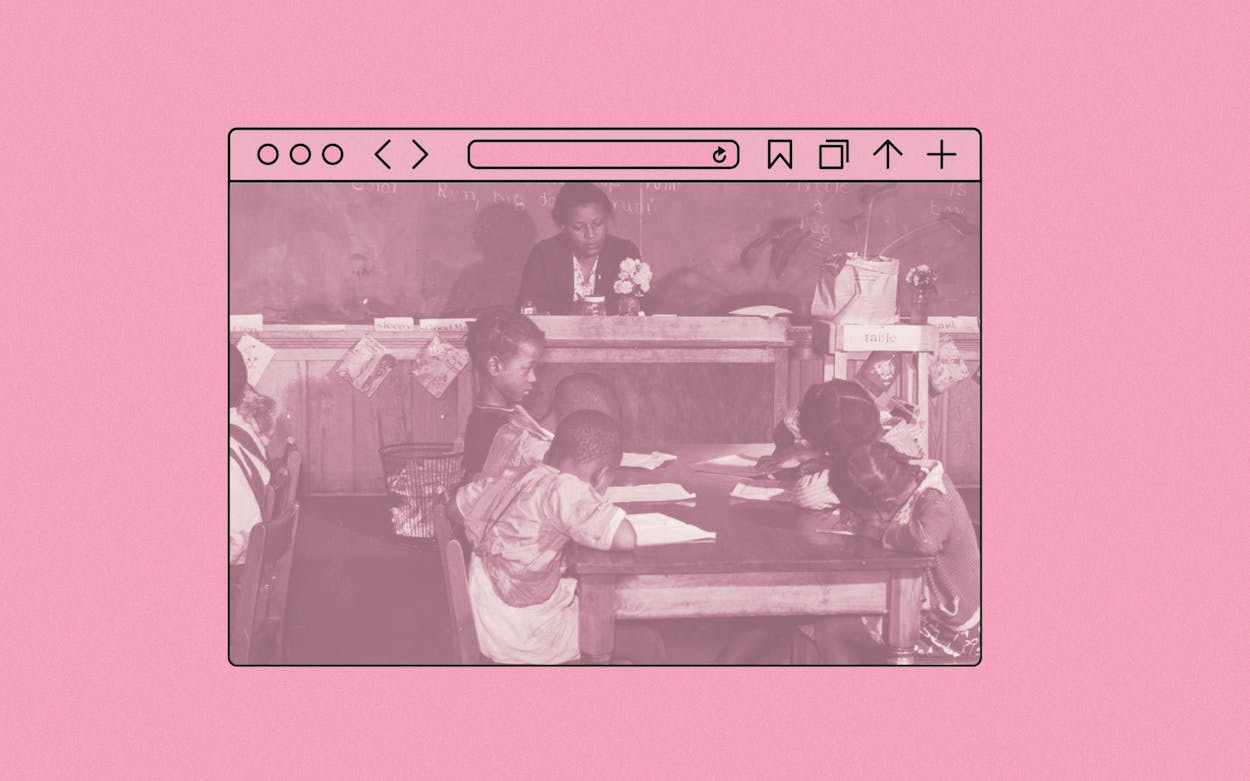I have lost count of how many times my kids have caught me gasping at some news on my phone these past two weeks and asked, “What is it, Mom?” Every one of these times, I asked myself: When my kids’ questions begin, how can I give them the best possible context for the Black Lives Matter movement? How can I best prepare them for the world?
We’ve talked about racism and the history of violence against African Americans that extends to this day, and their teachers have led discussions on tolerance, fairness, and inclusiveness. Still, as the questions keep coming along with a need for more understanding, I turned to the minds behind the state’s African American Studies high school elective, which was based on an initiative conceived by board member Aicha Davis and piloted in Dallas schools last school year. This past fall, when the Texas State Board of Education was considering implementing the class, students testified to the course’s benefits. Not only did it help them understand more about African American history, they said, it helped them understand the ways that historical events led to oppression today—and think about ways they can promote justice.
Having passed the board unanimously in April of this year, the elective course will roll out in participating districts including Houston, DeSoto, Grand Prairie, Fort Bend, Fort Worth, San Antonio, and Marlin next semester, with an emphasis on primary source documents, photos, and artifacts, as well as websites and films. Students will investigate the historical roots of issues like educational inequality, then analyze how that inequity has manifested itself in education today. “I wanted to give them that historical context,” Davis says, “and when they think about what’s going on now, they can develop plans to advocate for change.”
Davis said that despite tight budgets, the course is already in high demand in districts that represent a variety of demographics. “It hasn’t just been, ‘We have a strong black population; let’s have something to offer them,’” she says. “It’s really, really exciting.”
For teachers and parents who want to give their kids history and perspective on current civil rights challenges—and for anyone else who wants to educate themselves—below are some resources that the course’s advisers and curriculum writers suggest.
Websites for all ages (though curriculum writers strongly suggest that parents and teachers preview material and adapt to students’ reading levels as necessary):
This Texas State Library and Archives Commission online exhibit explores how African American legislators in Texas worked to achieve heightened representation from the 1860s through the 1880s—and the terroristic tactics white politicians used to maintain political power.
The Teaching Texas Slavery Project
Using documents like plantation papers and reward notices for runaway slaves, this site, run by the University of Texas at Austin, helps teachers use primary materials to teach the story of enslavement and race in Texas.
The Texas Freedom Colonies Project
This site, started by Andrea Roberts of Texas A&M University, focuses on the former enslaved people who bought land in Texas after the Civil War and created “Freedom Colonies,” land-owning settlements.
Through meeting minutes and other reports, this collection of digital exhibits created by CCP (run by the University of Delaware) celebrates the history of black political organizing in the U.S.
This “digital memorial” uses interactive maps, timelines, databases, and animations to show how enslaved Africans were forced across the Atlantic and then dispersed across the Americas.
Reading for high school age and beyond:
A Black Women’s History of the United States, by Daina Ramey Berry and Kali Nicole Gross
Two award-winning historians examine black womanhood in America, from enslaved women to modern activists.
Reclaiming the Black Past: The Use and Misuse of African American History in the Twenty-first Century, by Pero G. Dagbovie
Reclaiming the Black Past explores how African American history is understood and presented, particularly in the post-Obama era, by educators, entertainers, journalists, and other curators of history.
Remaking Black Power: How Black Women Transformed an Era, by Ashley D. Farmer
Using political cartoons, manifestos, political essays, and other examples, Farmer, a historian at the University of Texas at Austin, shows how black women redefined the meaning of race, gender, and identity.
Beauty Shop Politics: African American Women’s Activism in the Beauty Industry, by Tiffany M. Gill
Gill, an associate professor of Africana studies and history at the University of Delaware, focuses on the significance of the beauty salon as a space for social, political, and economic change.
Chained in Silence: Black Women in Convict Labor in the New South, by Talitha L. LeFlouria
This look at the convict leasing system implemented by the state of Georgia in the 1860s shows how African American women have historically been forced to labor for private investors.
What Is Slavery?, by Brenda E. Stevenson
Stevenson, a professor of African American studies at UCLA, offers a deep dive into the violence and exploitation of slavery.
Unrequited Toil: A History of United States Slavery, by Calvin Schermerhorn
An accessible study of slavery’s role in the building of the United States, built around the narratives of enslaved people.
Banking on Freedom: Black Women in U.S. Finance Before the New Deal, by Shennette Garrett-Scott
Through this story of the St. Luke Penny Savings Bank in Richmond, Virginia—the first and only bank run by black women—Garrett-Scott sheds light on a period of black financial innovation between 1888 and 1930.
Help Me to Find My People: The African American Family Lost in Slavery, by Heather Andrea Williams
Williams chronicles the journeys of families who were separated (and, rarely, reunited) in this testament to the devastation of slavery.
- More About:
- Black Lives Matter








